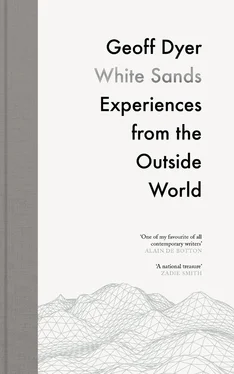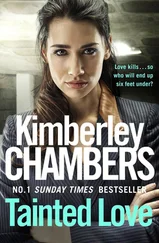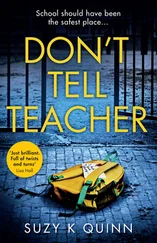People will continue to come to this beach. More photographs will be taken. A memorial to the dead couple will possibly be built or their names carved on the rock. Even if neither happens, some visitors to this spot will be conscious that something has happened here, will be familiar with the story of the murder. And even if that knowledge fades, this spot will still exude a faint charge of uncomprehended — possibly unnoticed — meaning. How long will that charge hold? What will remain of it two hundred years hence?
Northern Dark
Shortly after getting back from Utah, Jessica became obsessed with seeing the Northern Lights. She had been mentioning the Northern Lights for several years but now she began mentioning them all the time, telling me about friends for whom seeing the Northern Lights had been ‘the experience of a lifetime.’ Other topics were just preludes to the topic of the Northern Lights and how badly she wanted to see them. At one point she claimed that we were probably the only people in the world who had not seen the Northern Lights, that she didn’t know why I wouldn’t take her to see the Northern Lights. I wanted to see them too, I said. I just didn’t see when we would have a chance to go.
‘We could go in August,’ she said.
‘That has got to be among the most stupid things ever said by anyone,’ I said. I say stupid things too. We actually spur each other on to see who can come out with the most stupid things, so this was sort of a compliment. ‘You have to go in the winter,’ I said. ‘When it’s dark. In the summer it’s the land of the midnight sun. It’s the old Kierkegaardian either/or. Either the Northern Lights or the midnight sun. You can’t have both.’
‘Oh, I see. We can’t have both, so we’ve got to have neither. That’s what I call stupid.’
‘That’s what I call the remark of someone who has no understanding of logic whatsoever,’ I said.
This was in May. We weren’t really interested in experiencing the midnight sun, though we did enjoy hearing about it from our friend Sjon, who lives in Reykjavik.
‘When I was a kid I had trouble sleeping in the summer,’ he told us over dinner at an Indian restaurant in London. ‘In my twenties, I stayed up partying all night. Now I have very thick curtains.’
The months slipped by, the days grew longer and then, as soon as they had become as long as possible, they started to get shorter, until a day lasted only half a day, and this year became last year and next year became this year and we were suddenly in the fifth year of what Jessica had told Sjon was ‘a basically sunless marriage.’ Weather-wise, it had been the most severe December in London for over a hundred years. Snow came early, bringing ‘travel chaos’ to the road and rail networks. Heathrow could not cope. Flights were cancelled, but we were cozy at home, eating biscuits and watching the snow drift past our uncurtained windows or watching the news on TV, glad that we weren’t camped out like refugees at Heathrow, waiting out the backlog of cancelled flights, pestering airline staff for the food and drink vouchers to which we were surely entitled. Then, in January, after the snow had cleared and the country was back on its feet again, we were there, at Heathrow, waiting for a plane that would take us north, north to Oslo, then further north to Tromsø and deep into the Arctic Circle, to the Svalbard archipelago.
Having opted for the Northern Lights Experience rather than the Midnight Sun Experience, our chances of being able to have the Northern Lights Experience were enhanced by the fact that it was dark all day long. We could spend twenty-four hours a day seeing the Northern Lights, having the Northern Lights Experience, but first we experienced the Expense Experience in Oslo. How lovely it must be to live there and travel elsewhere, to arrive in London, Tokyo or even Papeete and be amazed by how cheap everything is. The train from the airport to the centre of town cost a fortune. Then we walked from our expensive hotel through the frozen city, past the frozen pond or rink where everyone was expertly skating, and ate at the most expensive restaurant in the world even though, by Oslo standards, it was modestly priced. We were stunned by the cold and the expense but not so stunned that we did not feel the first inkling of regret for coming to a frozen, dark and fiendishly expensive country.
In the morning, at paralysing expense, we travelled back to the airport to fly on to Tromsø and Svalbard. A snowstorm was in progress, a storm that would have paralysed England for six months and might even have led to a declaration of a state of emergency and the imposition of martial law. In Oslo the Norwegians took it in their stride. Part of the reason our dinner had been so expensive, I guessed as we sat on the plane, watching its wings get de-iced, must have been taxes which went towards the cost of keeping the travel network unparalysed throughout the blizzards and subzero temperatures that were such a regular feature of life that our take-off was delayed by only five minutes.
It was daylight when we took off and night when we arrived, several hours later, in Longyearbyen. Even if we had landed when we had taken off it would still have been night in Longyearbyen. We could have landed here any time in the previous six weeks and it would have been deep night and it would have been just as cold, colder than anywhere I had ever been, colder and darker than anywhere anyone in their right mind would ever have visited. We had only just got off the plane, were walking to the terminal, when Jessica said exactly what I was thinking:
‘Why have we come to this hellhole?’
‘Because you wanted to see the Northern Lights,’ I said, though at that point there was nothing to see but the Northern Dark, darkness everywhere, all around, with no possibility of light.
A cheerless bus took us from the terminal into the godforsaken town. There was nothing to see, except lights shining in the darkness, revealing — though this seemed hard to credit — people working outside, building buildings in conditions when everything required for building must have been rendered unbuildably useless by the unbelievable cold.
The Basecamp Trapper’s Hotel was a deliberately rough-hewn place, comfortable but sufficiently makeshift to impart a Shackletonian quality to one’s stay in the frozen wastes. In the breakfast room there was a polar-bear skin on the wall, like a Raj tiger in vertical mode. Best of all, there was a glass-ceilinged area where you could kick back and trip out on the Northern Lights. An extremely attractive little nook, this, because although we had only been in Longyearbyen about ten minutes that was long enough to disabuse us of the idea that we had come from a country that had endured a harsh winter. We had actually come from a mild, temperate little island, quaintly inexpensive and Mediterranean in its wintery balminess. Nevertheless, we did what you do when you come to a place for a Euro city break: we went for a walk, one of the most horrible walks we had ever embarked on. The Norwegian word for ‘stroll’ is best translated as ‘grim battle for survival’: Ice Station Zebra stuff, with elements of the retreat from Moscow thrown in. The temperature was a thousand degrees below zero, not counting the wind-chill, which sent snow streaming through the dark streets as if fleeing an invading army. We made it to the harshly lit supermarket, where we bought beer, returned to our room and sat on the bed without speaking. I sensed that the chances of having sex in the course of our stay were, like the temperature, far below zero. We had been here little more than an hour and our spirits were already appreciably lower than they had been in Oslo, to say nothing of London, which we now looked back on with bliss-was-it-in-that-dawn nostalgia.
Читать дальше












